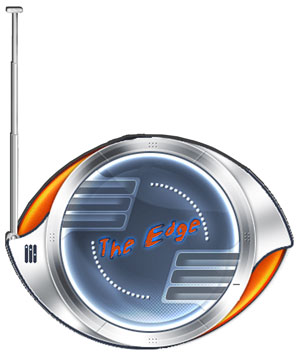FCC grants full-power status to KCEU
Fall 2002 saw the addition to the College of Eastern Utah the first broadcast radio station in the school’s history. While a short-lived audio production program was started under Neil Warren years ago, no attempt to obtain a broadcast license was made until recently.
“In October 2007, we submitted an application to the Federal Communication Commission. This was the first opportunity offered by the FCC in over 10 years for colleges and other non-profit groups to apply for licensure,” said Troy Hunt, advisor of the campus radio station, 107.9 The Edge.

Fall 2002 saw the addition to the College of Eastern Utah the first broadcast radio station in the school’s history. While a short-lived audio production program was started under Neil Warren years ago, no attempt to obtain a broadcast license was made until recently.
“In October 2007, we submitted an application to the Federal Communication Commission. This was the first opportunity offered by the FCC in over 10 years for colleges and other non-profit groups to apply for licensure,” said Troy Hunt, advisor of the campus radio station, 107.9 The Edge.
“For the past several years, I have attended the National Association of Broadcasters convention and spoken with an FCC representative. Each year, the same person told me that within a year we would see a chance to apply. In 2007, I asked the same question, reminding her of the previous five year’s answers, and she smiled and said, ‘This October.’ I was shocked, I didn’t know what to do.”
After seeking the aid of a contract engineer, the process of applying for CEU license began. “It is a complex process,” said Hunt. “We had to look at the available frequencies in the reserved band to see where our best bet would be. Then we had to search for a location to house our transmitter, tower space from which to broadcast, and a wide variety of technical considerations.”
After the application was submitted, problems arose. Hunt continues, “We applied for a class-A license. This allows us to broadcast six kilowatts of power. This power covers most of Carbon and parts of Emery counties, just right for our needs. However, there were other groups on the I-15 corridor who applied for the same frequency, but applied for 100kW stations. This created what is called a mutually exclusive group. Since we would all cause interference to each other, no license was granted.”
The FCC allowed a window for negotiation, or for applicants to file changes to their application. The college, spearheaded by Hunt, went forward with changes. “We originally applied for 91.5 on the FM dial. When we looked things over, we found that 89.9 was another viable option. But to do this, we had to move our transmitter location from Four-Mile Hill to East Carbon City.” The amended application was filed on Jan. 2. “At that point, we could only cross our fingers and hope,” said Hunt.
On Feb. 13, 2008 the petition for the right to build a full-service radio station was approved by the FCC. “I opened my e-mail that morning and found a message indicating we were granted the construction permit. This means that within the next three years, we need to obtain funding and have the station on the air,” Hunt added. “When we go on the air at full power, you will find us at 89.9 and we have been assigned the call letters KCEU.” The station will cover the area from East Carbon to Price quite well, and will have limited coverage in Helper.
While the college has the low-power radio station in place, the costs of building this station are high. “I don’t have exact figures yet, but we are looking to need somewhere between $150,000-$200,000. This is a lot of cash, but these are one-time expenses. We are looking for any and all donations to help build this opportunity for the college and the community.”
Interested parties can contact Hunt at (435) 650-5709, or at [email protected].




